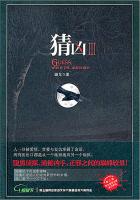The question of whether a man expresses himself in a grotesque or laughable phraseology, or in a stately and restrained phraseology, is not a question of motive or of moral state, it is a question of instinctive language and self-expression. Whether a man chooses to tell the truth in long sentences or short jokes is a problem analogous to whether he chooses to tell the truth in French or German.
Whether a man preaches his gospel grotesquely or gravely is merely like the question of whether he preaches it in prose or verse.
The question of whether Swift was funny in his irony is quite another sort of question to the question of whether Swift was serious in his pessimism.
Surely even Mr. McCabe would not maintain that the more funny "Gulliver" is in its method the less it can be sincere in its object.
The truth is, as I have said, that in this sense the two qualities of fun and seriousness have nothing whatever to do with each other, they are no more comparable than black and triangular.
Mr. Bernard Shaw is funny and sincere. Mr. George Robey is funny and not sincere. Mr. McCabe is sincere and not funny.
The average Cabinet Minister is not sincere and not funny.
In short, Mr. McCabe is under the influence of a primary fallacy which I have found very common m men of the clerical type.
Numbers of clergymen have from time to time reproached me for making jokes about religion; and they have almost always invoked the authority of that very sensible commandment which says, "Thou shalt not take the name of the Lord thy God in vain."Of course, I pointed out that I was not in any conceivable sense taking the name in vain. To take a thing and make a joke out of it is not to take it in vain. It is, on the contrary, to take it and use it for an uncommonly good object. To use a thing in vain means to use it without use. But a joke may be exceedingly useful;it may contain the whole earthly sense, not to mention the whole heavenly sense, of a situation. And those who find in the Bible the commandment can find in the Bible any number of the jokes.
In the same book in which God's name is fenced from being taken in vain, God himself overwhelms Job with a torrent of terrible levities.
The same book which says that God's name must not be taken vainly, talks easily and carelessly about God laughing and God winking.
Evidently it is not here that we have to look for genuine examples of what is meant by a vain use of the name. And it is not very difficult to see where we have really to look for it.
The people (as I tactfully pointed out to them) who really take the name of the Lord in vain are the clergymen themselves. The thing which is fundamentally and really frivolous is not a careless joke.
The thing which is fundamentally and really frivolous is a careless solemnity. If Mr. McCabe really wishes to know what sort of guarantee of reality and solidity is afforded by the mere act of what is called talking seriously, let him spend a happy Sunday in going the round of the pulpits. Or, better still, let him drop in at the House of Commons or the House of Lords. Even Mr. McCabe would admit that these men are solemn--more solemn than I am.
And even Mr. McCabe, I think, would admit that these men are frivolous--more frivolous than I am. Why should Mr. McCabe be so eloquent about the danger arising from fantastic and paradoxical writers?
Why should he be so ardent in desiring grave and verbose writers?
There are not so very many fantastic and paradoxical writers.
But there are a gigantic number of grave and verbose writers;and it is by the efforts of the grave and verbose writers that everything that Mr. McCabe detests (and everything that I detest, for that matter) is kept in existence and energy.
How can it have come about that a man as intelligent as Mr. McCabe can think that paradox and jesting stop the way? It is solemnity that is stopping the way in every department of modern effort.
It is his own favourite "serious methods;" it is his own favourite "momentousness;" it is his own favourite "judgment" which stops the way everywhere. Every man who has ever headed a deputation to a minister knows this. Every man who has ever written a letter to the Times knows it. Every rich man who wishes to stop the mouths of the poor talks about "momentousness." Every Cabinet minister who has not got an answer suddenly develops a "judgment."Every sweater who uses vile methods recommends "serious methods."I said a moment ago that sincerity had nothing to do with solemnity, but I confess that I am not so certain that I was right.
In the modern world, at any rate, I am not so sure that I was right.
In the modern world solemnity is the direct enemy of sincerity.
In the modern world sincerity is almost always on one side, and solemnity almost always on the other. The only answer possible to the fierce and glad attack of sincerity is the miserable answer of solemnity.
Let Mr. McCabe, or any one else who is much concerned that we should be grave in order to be sincere, simply imagine the scene in some government office in which Mr. Bernard Shaw should head a Socialist deputation to Mr. Austen Chamberlain. On which side would be the solemnity?
And on which the sincerity?
I am, indeed, delighted to discover that Mr. McCabe reckons Mr. Shaw along with me in his system of condemnation of frivolity.
He said once, I believe, that he always wanted Mr. Shaw to label his paragraphs serious or comic. I do not know which paragraphs of Mr. Shaw are paragraphs to be labelled serious; but surely there can be no doubt that this paragraph of Mr. McCabe's is one to be labelled comic. He also says, in the article I am now discussing, that Mr. Shaw has the reputation of deliberately saying everything which his hearers do not expect him to say.
I need not labour the inconclusiveness and weakness of this, because it has already been dealt with in my remarks on Mr. Bernard Shaw.















